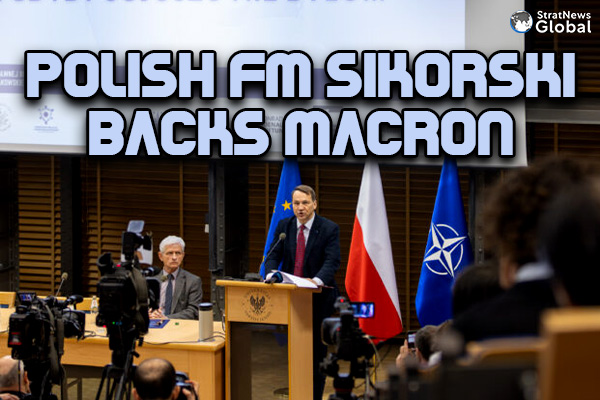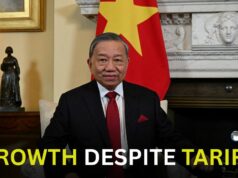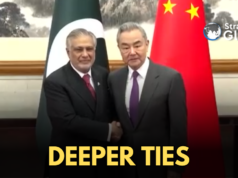Weeks after French President Emmanuel Macron’s remark on deploying Western troops in Ukraine sparked threats from Moscow and denials by other EU members, Polish Foreign Minister Radoslaw Sikorski said NATO troops in Ukraine was ‘not unthinkable.’
In a post on X, formerly Twitter, on Friday evening, Sikorsky said that “The presence of NATO forces in Ukraine is not unthinkable…I appreciate French President Emmanuel Macron’s initiative because it is about Putin being afraid, not us being afraid of Putin.”
💬 The presence of #NATO forces in Ukraine is not unthinkable. I appreciate the 🇫🇷 President Emmanuel Macron’s initiative, because it is about Putin being afraid, not us being afraid of Putin.
| FM @sikorskiradek during a conference on NATO at @PLParliament pic.twitter.com/yVZc3AlbJZ
— Ministry of Foreign Affairs 🇵🇱 (@PolandMFA) March 8, 2024
Sikorski’s position contradicts Polish Prime Minister Donald Tusk, who insists he has no plans to send troops to Ukraine. During a visit to Prague last week, Tusk said the focus should be on supporting Ukraine’s efforts to repel Russian aggression.
After hosting a security conference on Ukraine in Paris February 26, President Macron said that although there was “no consensus” among European leaders over deploying troops in Ukraine, “nothing should be ruled out” in a dynamic situation like this, and “we will do whatever it takes to ensure that Russia cannot win this war.”
Moscow responded instantly, saying any such move would make war with NATO inevitable.
To prevent further escalation, Germany, Spain, Poland, the Czech Republic the UK and others categorically denied any plans to send troops to Ukraine.
British Foreign Secretary David Cameron too has reiterated his stand against sending western/NATO troops to Ukraine, even for training missions. In an interview to a German daily, he said Britain has trained 60,000 Ukrainian soldiers abroad, and placing foreign soldiers in Ukraine would make them easy targets for Russia.
However, he said he was willing to work with Germany to help overcome its reluctance to supply Taurus cruise missiles to Ukraine, which Berlin fears could be used to strike targets deep inside Russia, leading to an escalation of the conflict.
Meanwhile, at the invitation of US Defence Secretary Lloyd Austin, the Ukraine Defense Contact Group (UDCG), which coordinates weapons deliveries to Ukraine, will meet at Ramstein Air Base in Germany on March 19 to discuss ways to step up support to Kiev. . The UDCG comprises all 32 NATO member states, including Sweden which joined on March 7, and 24 other countries opposed to the Russia’s invasion of Ukraine two years ago.
Also See
In a career spanning three decades and counting, Ramananda (Ram to his friends) has been the foreign editor of The Telegraph, Outlook Magazine and the New Indian Express. He helped set up rediff.com’s editorial operations in San Jose and New York, helmed sify.com, and was the founder editor of India.com.
His work has featured in national and international publications like the Al Jazeera Centre for Studies, Global Times and Ashahi Shimbun. But his one constant over all these years, he says, has been the attempt to understand rising India’s place in the world.
He can rustle up a mean salad, his oil-less pepper chicken is to die for, and all it takes is some beer and rhythm and blues to rock his soul.
Talk to him about foreign and strategic affairs, media, South Asia, China, and of course India.





